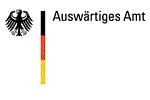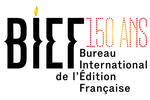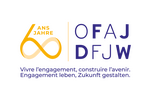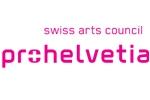The Goldschmidt+ for German- and French-speaking literary translators
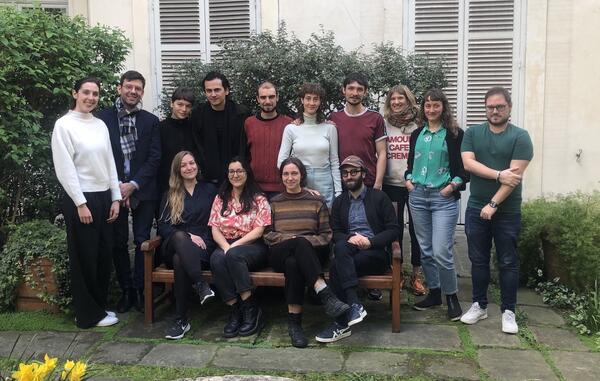
A new format for the Goldschmidt+ for young literary translators 2024
May, September and October 2024
The Georges Arthur Goldschmidt Programme+ is aimed at young literary translators* from Switzerland, France and Germany. The scholarship programme is jointly organized by the Frankfurter Buchmesse, the Bureau International de l'Édition Française (BIEF) and the Swiss Arts Council Pro Helvetia, and is supported by the Franco-German Youth Office (DFJW).
In order to provide ongoing training for young translators*, the 2024 programme will take a different form. The new format is aimed exclusively at former participants of the Goldschmidt Programme, who must not be older than 35 at the start of the program. The aim of the new format is to deepen their skills, expand their network and make their work more visible.
To this end, the Goldschmidt+ 2024 envisions three modules that will take place throughout the year in Switzerland, France, and Germany. Each module will tie in with a local literary festival or book fair to spotlight the work of literary translators and provide them with continuing education and networking opportunities within the industry:
- Module 1: Professional seminar and participation in the Solothurn Literature Days (Switzerland, 8 - 12 May 2024)
- Module 2: Professional seminar and participation in the Festival Vo-Vf in Gif-sur-Yvette (France, 27 September - 1 October or 4 October - 8 October 2024).
- Module 3: Professional Seminar and Participation in the Frankfurter Buchmesse (Germany, 14 - 18 October 2024)
In order to introduce the work of literary translators to a younger audience, the participants will also present their profession at schools and universities in cooperation with the DFJW.
This is what former participants say about the programme
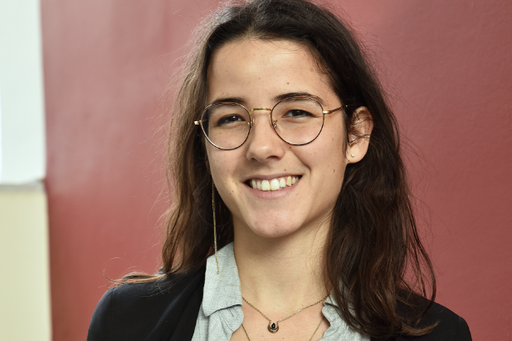
Translation is a skill you have to acquire. When working in teams of two or at the plenum in Wannsee and Arles, we saw our texts improve. Translation is an important profession – you discover this when you come into contact with publishers from France and Germany. The Goldschmidt programme is a first small step towards becoming a literary translator. But it's an important one.
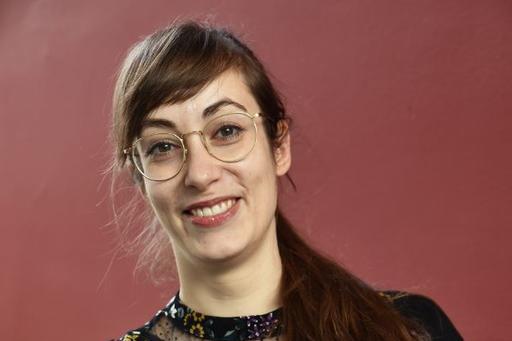
Spending two months surrounded by interested, appreciative, talented and committed people who share their own passion for language and literature is one of the most enriching experiences of my life.
Leading lights behind the programme

After studying German and French Linguistics and Literature at Strasbourg University and completing an MA in Publishing at the Sorbonne in Paris, Isabelle Liber published her first translation from German with Actes Sud in 2002. She was a member of the Goldschmidt Programme in 2005.
After studying German and French Linguistics and Literature at Strasbourg University and completing an MA in Publishing at the Sorbonne in Paris, Isabelle Liber published her first translation from German with Actes Sud in 2002. She was a member of the Goldschmidt Programme in 2005.
Her translation work has been growing steadily over the last years and includes novels, short stories, art books, non-fiction and YA.
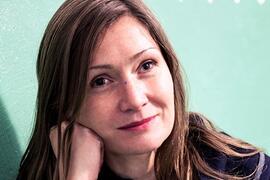
Claudia Hamm found her way to literary translation via theater directing at numerous stages in France, Italy, and German-speaking countries, writing essays and theater texts, and long stays in France, Mexico, and Chile.
Claudia Hamm found her way to literary translation via theater directing at numerous stages in France, Italy, and German-speaking countries, writing essays and theater texts, and long stays in France, Mexico, and Chile.
For her translations of Emmanuel Carrère, Joseph Andras, Édouard Levé, Mathias Énard, Ivan Jablonka, and Nathalie Quintane, among others, she was nominated for the Translator's Prize of the Leipzig Book Fair and the Christoph Martin Wieland Prize and received the Prize of the Kulturkreis der deutschen Wirtschaft. She is co-founder of the translationale berlin festival and has taught at the Academy of Fine Arts Vienna, the Free University of Berlin, the University of Göttingen, and the literary institutes of Bern and Hildesheim, among others.
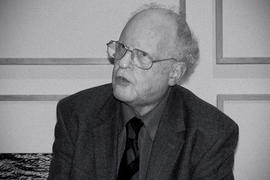
The scholarship programme is organised jointly by Frankfurter Buchmesse, the Franco-German Youth Office (DFJW), the society for promoting French literature abroad (BIEF) and Pro Helvetia, the Swiss Arts Council.
The scholarship programme is organised jointly by Frankfurter Buchmesse, the Franco-German Youth Office (DFJW), the society for promoting French literature abroad (BIEF) and Pro Helvetia, the Swiss Arts Council.
Georges-Arthur Goldschmidt has been a patron of the German-French literary translation programme named after him since 2007. Born on 2 May 1928 in Reinbek near Hamburg, he and his older brother were taken into exile in France in 1938 to escape Nazi persecution. Goldschmidt became a French citizen and French became his language. It wasn’t long before he made a name for himself as a translator of German literature. In addition to his work as a translator, Goldschmidt writes numerous essays and autobiographical pieces.
FAQ
In 2024, the Goldschmidt Programme is only open to former program participants who meet the following criteria:
- Age limit at the start of the program: 30 years (in exceptional cases 35 years).
- Permanent residence in France, Germany or Switzerland
- Activity as a literary translator
- Willingness to present the translator's profession during literary events and in schools/universities.
- Publication list, if available
- Curriculum vitae
- Concept proposal for an event on the topic of translation at one of the partner festivals
Die Teilnehmenden 2024
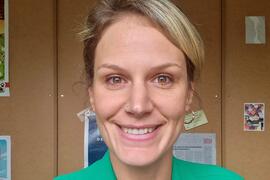
After completing a master's degree in Literary Translation in 2011, Justine Coquel published her first translation from German with Jacqueline Chambon.
After completing a master's degree in Literary Translation in 2011, Justine Coquel published her first translation from German with Jacqueline Chambon.
She took part in the Goldschmidt Programme in 2014 and the École de Traduction Littéraire (ETL) in 2021. She translates fiction, thrillers, comics and manga for various publishers.
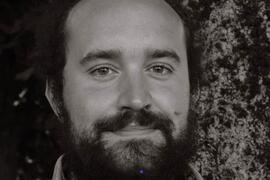
Valentin Decoppet translates from German, Swiss German and English into French. He has written a novel, short stories and is currently working on a dissertation on the poetics of the German translator Eugen Helmlés at the Université de Lausanne.
Valentin Decoppet translates from German, Swiss German and English into French. He has written a novel, short stories and is currently working on a dissertation on the poetics of the German translator Eugen Helmlés at the Université de Lausanne.
As a translator, he prefers experimental texts or texts that play with and twist language, creating and discovering new characters and novel ways of expressing a changing reality. Rhythm, sound and movement are the essential elements of a text for him.
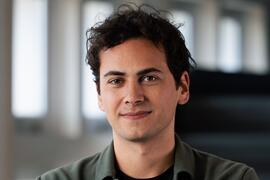
Boris Kenov, born in Basel in 1993, is a translator from French, English and Bulgarian into German, with a particular interest in the interplay between words and images.
Boris Kenov, born in Basel in 1993, is a translator from French, English and Bulgarian into German, with a particular interest in the interplay between words and images.
After a preliminary design course at the Sofia Art Academy, he studied Multilingual Communication and Translation in Canterbury and Geneva. In 2023, he was a fellow of the Goldschmidt Programme for literary translators. Boris lives in Geneva.
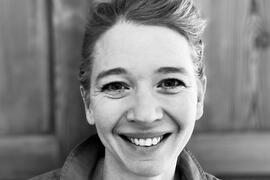
Julia Charlotte Kersting translates from French with a focus on Quebec literature, especially its multifaceted spectrum of expression in the linguistic space between "standard" French and English.
Julia Charlotte Kersting translates from French with a focus on Quebec literature, especially its multifaceted spectrum of expression in the linguistic space between "standard" French and English.
Such hybrid texts play with and challenge linguistic conventions, posing particular challenges for translation into other languages. It is texts like those by Réjean Ducharme, for example, that are of particular interest to the translator.
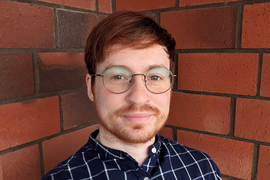
Gaël Le Lostec comes from Brittany and moved to Bremen after completing his master's degree in Translation and Localisation.
Gaël Le Lostec comes from Brittany and moved to Bremen after completing his master's degree in Translation and Localisation.
Today, he works as a freelance translator in the fields of environment and horticulture, while also pursuing a passion for children's literature. As he was already inventing new words long before translating from English and German, he can finally put this expertise into practice!
His first book translation, "Schnapp den Dieb!" (Engl: Catch the Thief!) by Steffen Gumpert, was published in 2023 by Actes Sud under the title "Au voleur!".
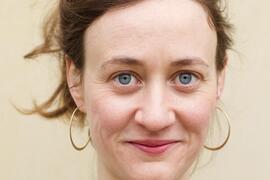
Marion Maurin translates from German, specialising in the humanities, essayistic prose and poetry.
Marion Maurin translates from German, specialising in the humanities, essayistic prose and poetry.
She prefers to translate collectively, as this allows her to better listen to the many voices that speak from the text. She is particularly interested in experimental ways of writing that serve the language rather than using it.
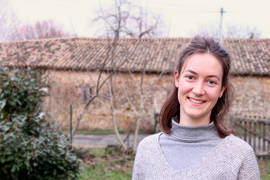
Lina Robertz works as a freelance editor and literary translator from English and French.
Lina Robertz works as a freelance editor and literary translator from English and French.
She is well versed in many different genres – from non-fiction and fiction to children's and young adult literature. What she likes best are timeless stories that open our eyes to the wider world. Before becoming self-employed, she was a trainee at a publishing house. She lives in a small village in western France and on the North Sea island of Juist.
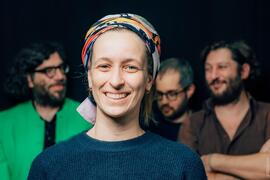
Claire Schmartz translates from French and English into German and Luxembourgish.
Claire Schmartz translates from French and English into German and Luxembourgish.
She is interested in the diversity of francophone literature (with a focus on Caribbean and African literature) as well as non-fiction. She is convinced that translations are an important means of building bridges in our globalised, multilingual world – be it with stories, memories or ideas.
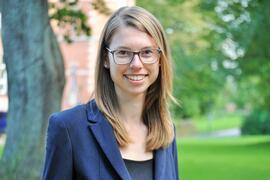
Merle Struve is a Romanist, translator and conference interpreter.
She is particularly interested in polyphonic texts and the details that only become apparent during translation.
What she likes most are the sometimes surprising, often fascinating discoveries that arise from each new translation – in the interaction between languages, but also between people, professions and subject areas.
Merle Struve is a Romanist, translator and conference interpreter.
She is particularly interested in polyphonic texts and the details that only become apparent during translation.
What she likes most are the sometimes surprising, often fascinating discoveries that arise from each new translation – in the interaction between languages, but also between people, professions and subject areas.
What she likes most are the sometimes surprising, often fascinating discoveries that arise from each new translation – in the interaction between languages, but also between people, professions and subject areas.
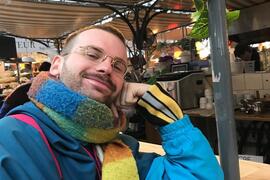
After studying International Relations, Translation and Cultural Mediation in Paris and Germany, Jeffrey Trehudic moved to Berlin and worked for a while in the Franco-German cultural sector.
After studying International Relations, Translation and Cultural Mediation in Paris and Germany, Jeffrey Trehudic moved to Berlin and worked for a while in the Franco-German cultural sector.
In the spring of 2022, he took part in the Georges Arthur Goldschmidt Programme, after which he took up a position at the Literary Colloquium Berlin. Since June 2022, he has coordinated the publication of Litterall, an annual journal for German-language literatures, for which he has been translating for several years. He is currently translating the second novel by Sasha Marianna Salzmann (to be published by Christian Bourgois éditeur). He is particularly interested in queer voices and the questions that arise when translating their texts.
Benefit from the renowned programme
If you want to expand your network and expand your expertise, you should apply for the renowned Goldschmidt Programme.
Newsletter
Stay up to date about trends, offers and relevant news and subscribe to our newsletter.

